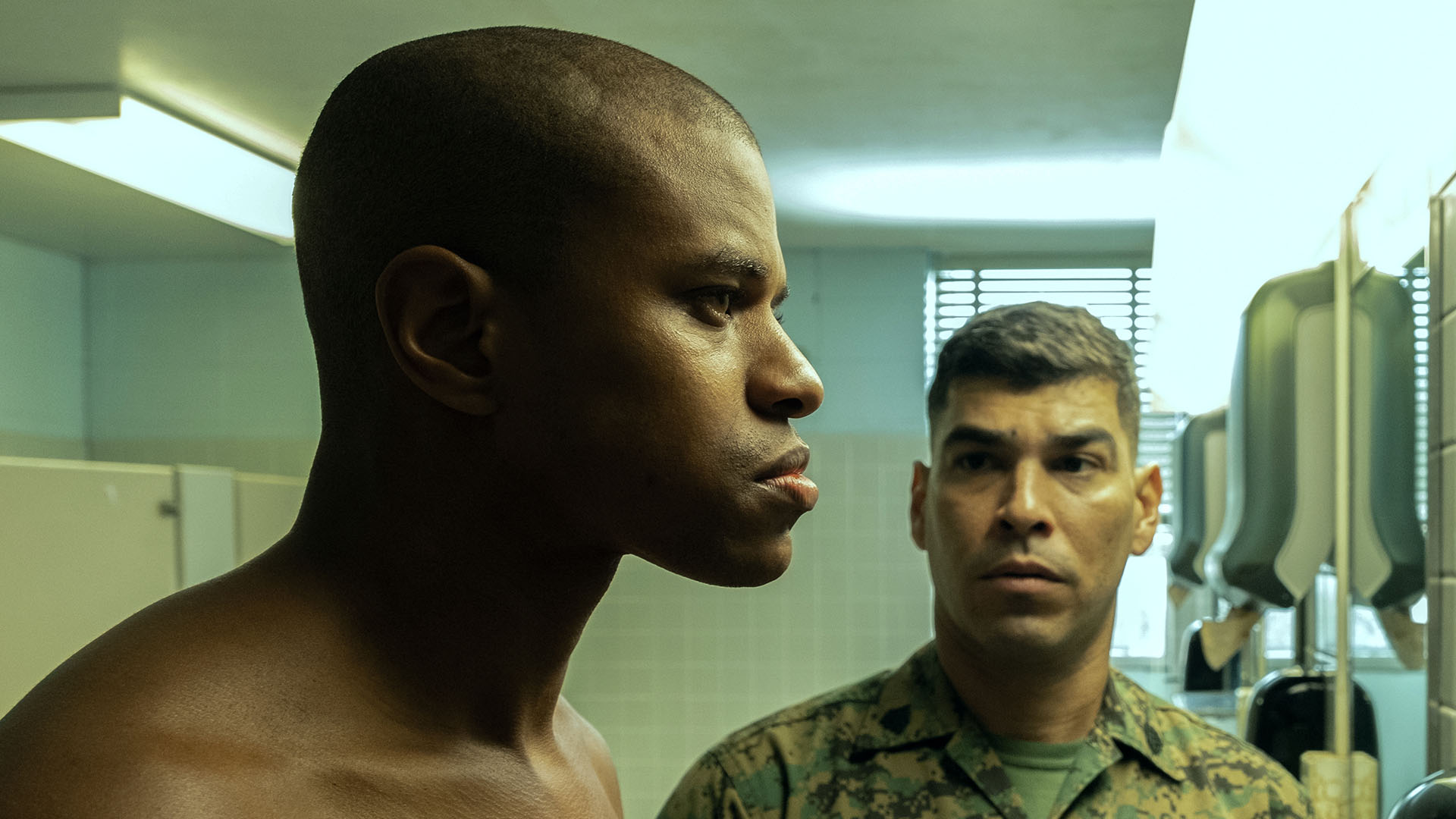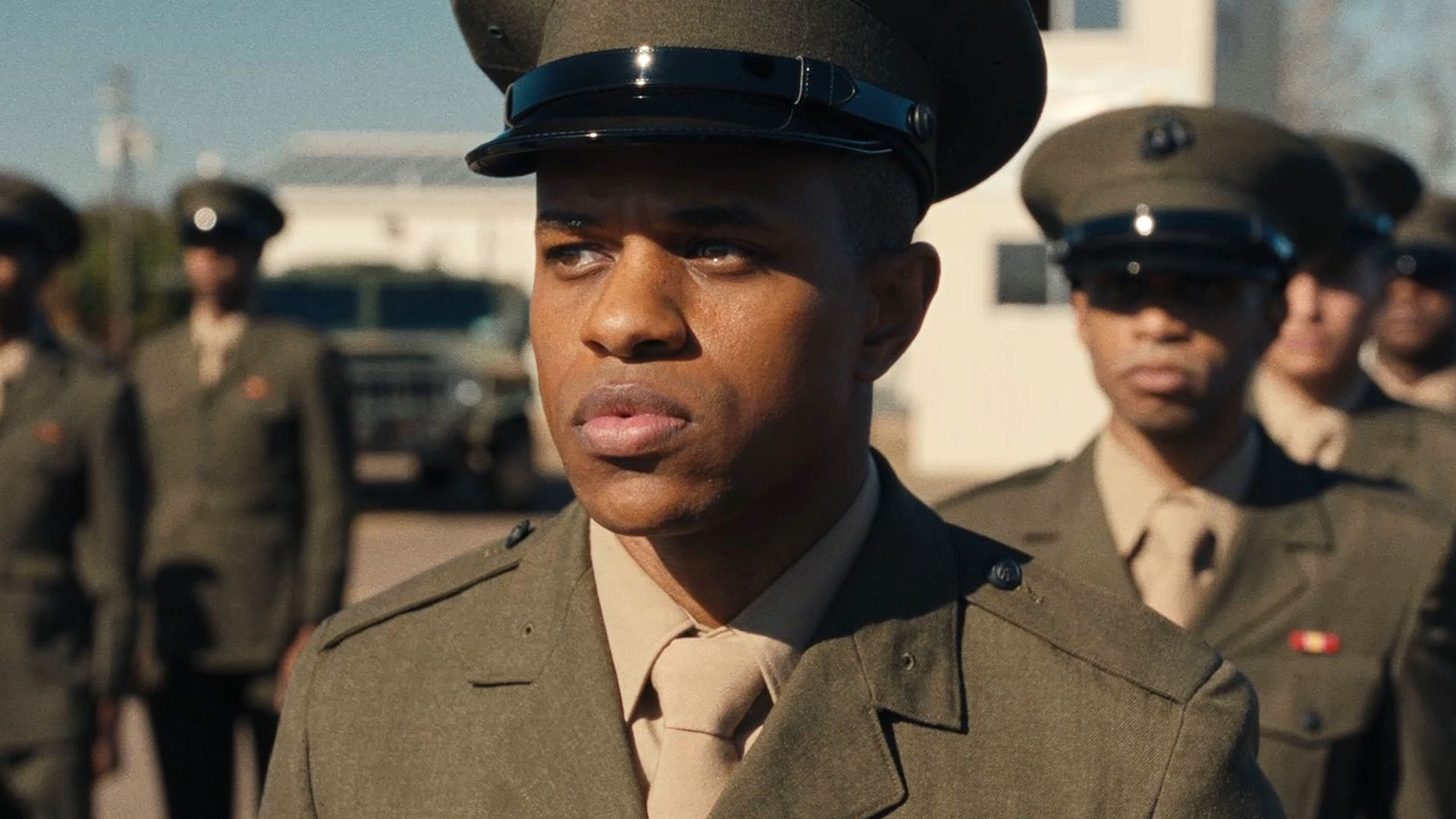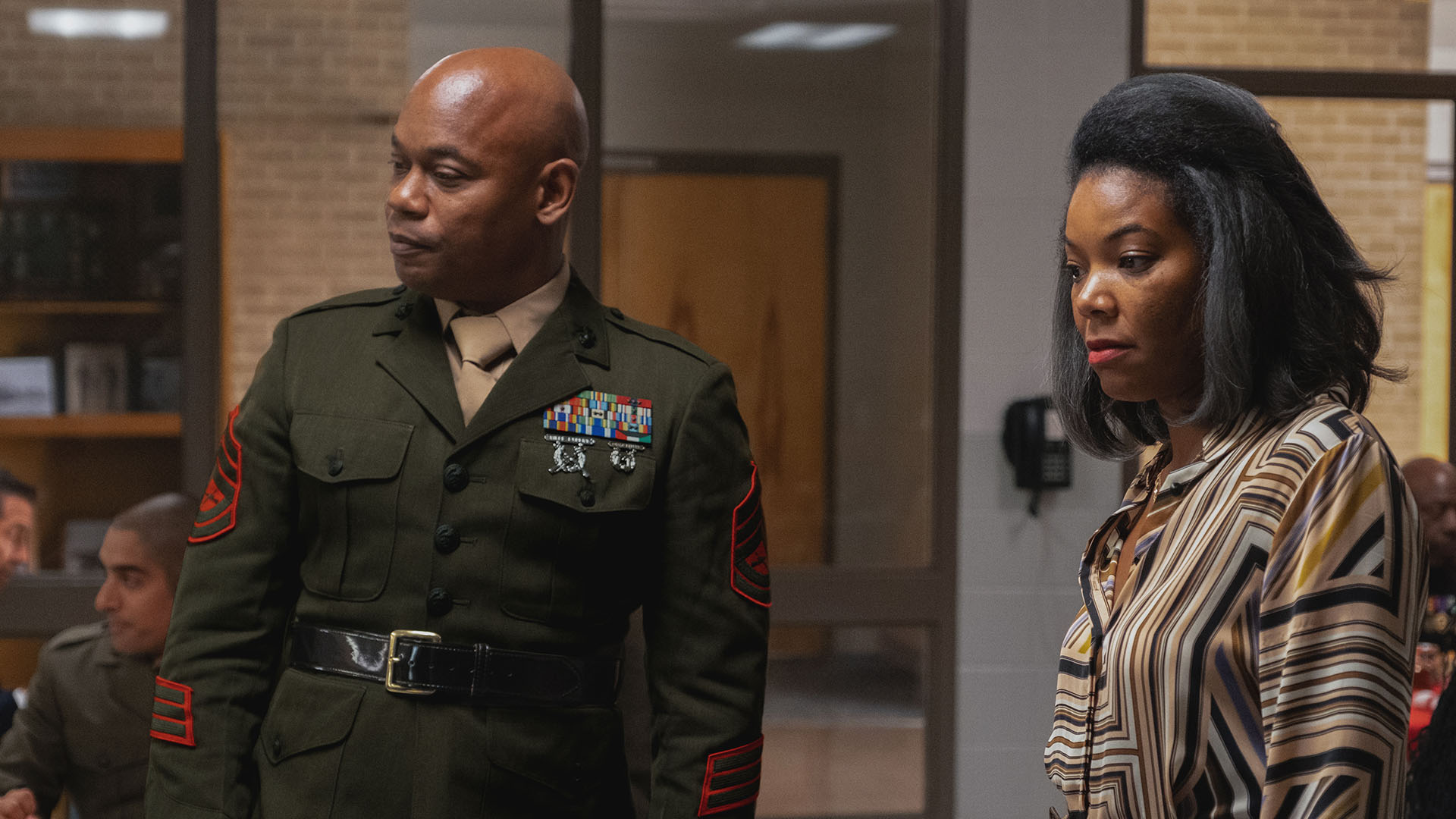Gay military drama The Inspection is a calling card for its star and director

In A24 Marines drama The Inspection, based on its director’s true-life story, a young gay Black man with very few options in his world attempts to join the US military. It’s an assured if slightly under-nourished narrative feature debut that’s best seen for its actors, writes Glenn Dunks.
When Elegance Bratton came out as gay to his mother at age 16, he was kicked out of home. After spending the next decade in various states of homelessness, he decided on enlisting with the United States Marine Corps. He had to remain closeted due to the country’s discriminatory “Don’t Ask, Don’t Tell” policy, but Bratton saw it as a way of finding himself, bridging the gap between he and his mother, and redefining his self-image as a gay Black man.
It is a compelling basis for a film, with Bratton taking on writing and directing duties for the first time. He is best known for short films and documentary work (most notably the excellent Pier Kids about homeless New York City queer and transgender youth, which won an Independent Spirit Award in 2020).
However, The Inspection is perhaps not as strong as the parts that make it. It has a lot of really great individual elements but doesn’t quite have the juice to make for an entirely satisfying end product. At just 90 minutes, those who want their cinema lean will rejoice, but some extra time spent navigating the insular and broken world of its protagonist may have given its later stretches more impact.
Ellis French (Jeremy Pope) knocks on the door of his mother, Inez (Gabrielle Union), asking for her help. It’s several years after 9/11 and he has made the seemingly impromptu decision to join the Marines and is laughed at right to his face. His apparent femininity is obvious to everybody and she assumes he will fail. Perhaps justifiably, given everything shown onscreen of bootcamps suggests a cruel and dehumanising process from which only the most mentally and physically strong can come out unscathed—“Our job is not to make Marines, it’s to make monsters”, says one instructor (Bokeem Woodbine).

In truth, Ellis is not able to hide his sexuality and becomes a target of homophobic abuse and hazing from staff and recruits alongside another wannabe Marine, Ismail (Eman Esfandi) who was born in the Middle East. Ellis does, however, find sympathy in Rosales (Raul Castillo), a junior instructor whose beauty and unknown sexuality clouds Ellis’ vision.
Bratton himself has spoken of the galvanising effect that joining the Marines had on him, working as a combat camera production specialist. After The Inspection, you may be confused exactly as to why. Bratton attempts to play both sides of the fence here, demonstrating quite clearly that the Marines is an institutionally morally corrupt organisation, while at the same time giving us a character whose identity is built around being accepted by it.
There are character moments here, particularly among the young men who stand alongside Ellis, that come across as undefined. If Bratton is trying to say that the singular individuals are not as bad as the broader institution, then it’s a fuzzy message. Ellis is patriotic, yet we never do see why when he is vilified for his sexuality as well as his race at every turn.
Thankfully, Jeremy Pope—perhaps best known for his Emmy-nominated role in Ryan Murphy’s Hollywood and Regina King’s One Night in Miami—is a perfect fit for the role. The way he moves and speaks is never inauthentic. There is a lived-in quality here that Pope is able to tap into; a shared experience with Ellis that echoes across the screen. It’s a perfect example of why casting queer actors rather than a straight actor can work so well. Yes, actors act and all of that, but the lack of performance artifice means Pope is able to commit his energy to digging even deeper than a heterosexual actor would likely have given to perfecting a femme walk or bodily gestures. It’s a small thing, but it really can matter.

Union, too, is strong as Ellis’ mother, but is partly symbolic of what ultimately doesn’t work about Bratton’s film. She needed more screen time to make her character more than just mean. Like Mo’Nique in Precious and Naomie Harris in Moonlight, Inez is cruel and emotionally abusive, inflicting upon her son the same suffocating torment that so many Black women face in a racist society. Her character’s big final scene is impressively played, but her relationship to her son’s homosexuality is underdeveloped, not giving it the gravitas it deserves.
As a low-budget calling card for Brattan’s talents, The Inspection is a good one. He proves he’s able to get performances and strong technical work out of his team. And for Pope, it is a gift of proving he can carry a dramatic feature as a Black, openly gay actor. If the film itself is somewhat unsatisfying, there’s more than enough within it to make it an interesting discovery for people once its key creatives become much bigger stars.




















